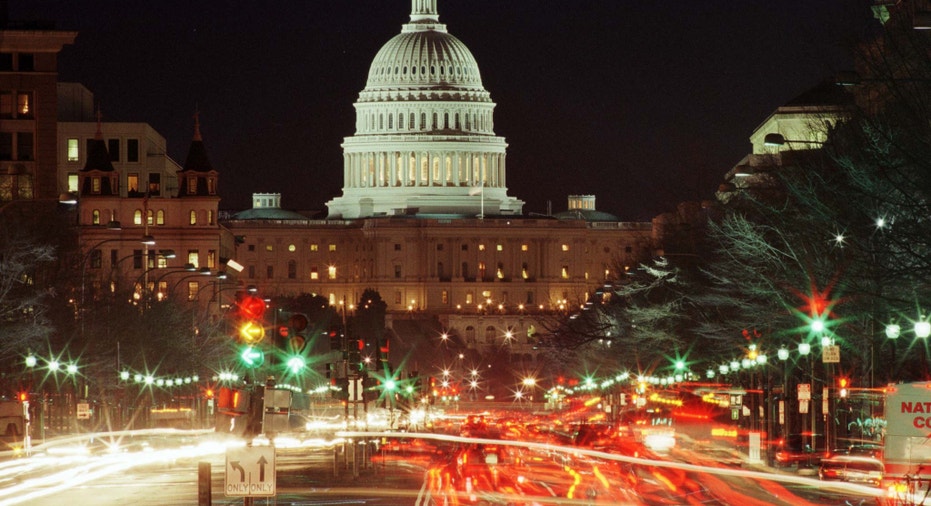Will Midterm Mayhem Mess up Wall Street in 2014?

As Wall Street reluctantly turns the page on a banner year, much of the 2014 focus is on the Federal Reserve and the slowly improving economy.
But don’t forget that 2014 is also a midterm election year, which tend to be rockier years for equities.
According to S&P Capital IQ, midterm election years since World War II have seen the greatest number of declines of 5% or more and the worst annual performance.
“The bloom is off the rose during the midterm election year. What’s more, it is wrought with uncertainty as investors wonder how majorities might change within both houses of Congress,” Sam Stovall, chief investment strategist at Capital IQ, wrote in a recent note to clients.
Of course, just because history shows midterm years can be turbulent doesn’t mean that will be the case this year, especially amid signs Congress will remain divided.
Second-Year Slump?
The first year of the presidential cycle is often a positive one for equities as investors and voters give the new commander-in-chief a brief honeymoon for winning election. The S&P 500 has posted an average annual gain of 6.3% during the inaugural year.
But that annual advance slips to just 5.3% during the second year, which is the lowest of the four-year cycle, Capital IQ said. The second and third quarters -- the ones leading up to the midterm election -- are two of just three quarters that have averaged a decline during the entire four-year election cycle since 1944. Capital IQ said the S&P 500 has lost an average of 2.5% in the second quarter of midterm years, compared with an average gain of 2% in all years.
“I think it’s going to be a pretty benign year in Washington for the markets. I don’t see much of a chance of a crisis."
Further, the midterm election year tends to suffer more painful declines. According to Capital IQ, 37% of all tumbles of 5% or more have occurred during the second year of the cycle, compared with 25% during the third year, 20% during the first year and 18% during the fourth year.
Capital IQ, which has a year-end 2014 target of 1895 for the S&P 500, also notes the market’s monthly performance usually bucks the historical tendencies during midterm election years in both direction and magnitude.
Easing D.C. Jitters
For example, the index has averaged a 1.2% gain during January in all years, but has lost an average of 0.4% during midterm years. In October, the month before the election, the S&P 500’s midterm election average gain of 3.1% is three times stronger than its average of 1% in all years.
Of course, Stovall acknowledges that history does not always repeat itself.
Annual historical trends have been influenced by a number of factors outside of elections, including Fed policy, earnings growth, oil prices and geopolitical events.
For the first time in several years, Wall Street enters 2014 without as much fear of a political crisis on the budget or debt ceiling. That’s because tensions have eased since the unpopular government shutdown earlier this year, resulting in a rare bipartisan budget agreement.
“I think it’s going to be a pretty benign year in Washington for the markets. I don’t see much of a chance of a crisis,” said Greg Valliere, chief political strategist at Potomac Research Group.
Political Predictions
Still, as 2014 kicks off, market participants will begin handicapping the chances the GOP holds onto its 17-seat majority in the U.S. House of Representatives and cuts into or even overtakes the Democrats’ 10-seat majority in the Senate.
The political calculations have been swinging in favor of Republicans in recent weeks as the White House struggles with the sloppy rollout of Obamacare and continuing concerns over surveillance by the National Security Agency.
Valliere said he believes it’s “virtually impossible” the GOP loses any seats in the House and they may even gain some. “I don’t see the Democrats having much of a chance at all because of the way the districts are drawn and because of Obamacare,” he said.”
A “very plausible” case can be made for the GOP to pick up some seats in the Senate, especially considering several vulnerable Democrats who are running in states Mitt Romney carried last year, Valliere said. But it is still a long shot for the Democrats to lose control of the Senate, he said.
“The bottom line is the House stays just as conservative and the Senate gets more conservative,” said Valliere.
Would that be a positive catalyst for stocks?
“I think that’s good for the markets. It means continued fiscal restraint and the Obama agenda will continue to be dead on arrival in the House,” said Valliere.
On the other hand, a more conservative Congress could give the White House less clout overseas in the event of a geopolitical crisis and prompt it to be more aggressive on the regulatory front.



















